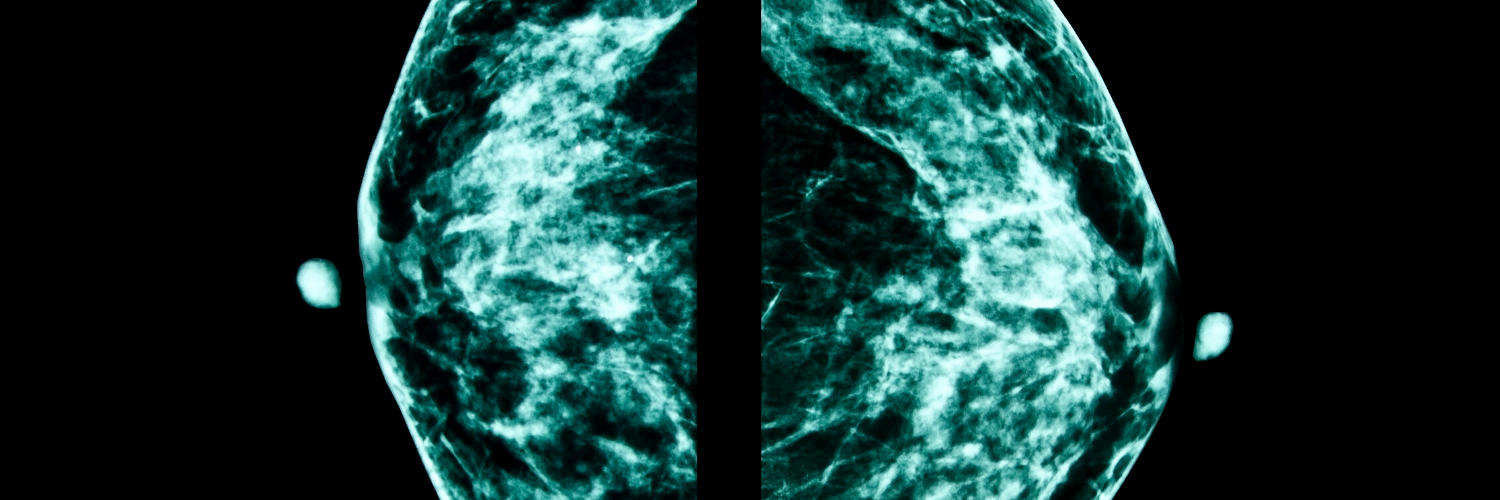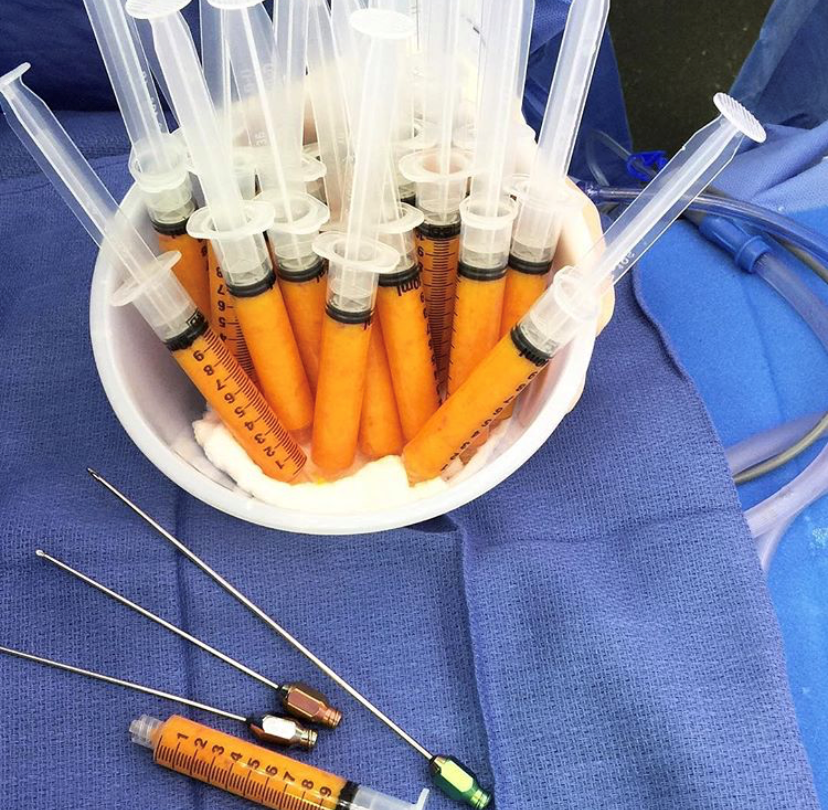
- 0 Comments
- PRMA Plastic Surgery
Does breast density impact your breast cancer risk?
There has been a lot of talk recently about breast density and how it affects breast cancer screening.
After California, Texas and several other states enacted new legislation this week that requires docs to inform women of a mammogram that reveals dense breast tissue, some physicians have voiced concern.
Much of this concern is over part of the legislation that also requires the physician to tell the patient that dense breasts are linked to higher risk of breast cancer, that they make mammograms harder to read and that there are alternatives to breast screening options.
PRMA surgeon Dr. Oscar Ochoa says that the legislation may cause unwarranted concern for patients as there has not been a definitive link between breast density and breast cancer. “Certainly this is an issue that has not been settled by the currently available clinical studies thus is not widely accepted across the board,” Ochoa says.
Dr. Otis Brawley of the American Cancer Society agrees and says that the law concerns him because even if there were a direct link, breast density scores that are currently used are not yet precise. “One radiologist’s eyes may be different from another radiologist’s at this point,” Brawley said. He also believes that the legislation will lead to an increasing number of women being referred for additional tests, which may not be necessary.
In most cases an MRI would be recommended for those patients determined to have dense breast tissue. Dr. Ochoa says that that the problem with the MRI is that it is not designed to be a screening tool for the general population.
“Although MRI may in fact detect early cancerous lesions in a dense breast that may not have been detected by mammogram, MRI is extremely sensitive and may detect small irregularities in breast tissue that may not be cancerous,” says Ochoa.
This may ultimately lead to numerous other tests and expenses for the patient.
Dr. Ochoa says that although he agrees that patients should be aware of dense breast tissue, the breast density score needs to be more precise and a plan of action in place for physicians on how to proceed with those patients that have a higher density score.
Author:Brandy (Korman) Haslam
Interestingly, in patients undergoing unilateral breast reconstruction (one breast only), DIEP flaps are just as good as SIEA flaps in terms of recovery and patient satisfaction even though the DIEP procedure is slightly more invasive.
Much of this concern is over part of the legislation that also requires the physician to tell the patient that dense breasts are linked to higher risk of breast cancer, that they make mammograms harder to read and that there are alternatives to breast screening options.
Leave Comment
Sign Up for Our Monthly Newsletter
Continue Reading

Breast Density and Risk of Breast Cancer – What’s the Scoop?

Research Performed at PRMA Proves Safety of DIEP Flap Reconstruction in Obese Patients
PRMA Proves Safety of DIEP Flap Reconstruction in Obese Patients July 08, 2020 Share on Facebook Twitter Linkedin Is DIEP flap breast reconstruction safe for obese patients? As more women choose the DIEP flap for breast reconstruction after mastectomy, some patients are unnecessarily turned away because they are overweight. Surgeons at PRMA Plastic Surgery say […]

Immediate Breast Reconstruction Plays Significant Role in Physical and Psychological Wellbeing
Immediate Breast Reconstruction Plays Significant Role in Physical and Psychological Wellbeing July 08, 2020 Share on Facebook Twitter Linkedin Does immediate breast reconstruction help breast cancer patients heal psychologically? Immediate breast reconstruction after mastectomy has significant benefits on the psychological and social well being of breast cancer survivors, according to a study done by Toronto […]

Tattoos Not Just For Fashion
Tattoos Not Just For Fashion July 08, 2020 Share on Facebook Twitter Linkedin How are tattoos used to help breast cancer patients? San Antonio, TX–Tattoos have been used for centuries for fashion and decoration, but today tattooing is also helping breast cancer patients feel whole again. After her breast reconstruction surgery last year, 33 year […]

Several Options available for Breast Reconstruction with Implants
Several Options available for Breast Reconstruction with Implants July 08, 2020 Share on Facebook Twitter Linkedin What are the different implant breast reconstruction options? Every year one in eight women will be diagnosed with breast cancer. Many are opting for the DIEP flap procedure as a reconstruction option after mastectomy, but some may not be candidates. For […]

Reconstructing Breasts with Feeling
Reconstructing Breasts with Feeling July 08, 2020 Share on Facebook Twitter Linkedin Do you still have breast feeling after a mastectomy and breast reconstruction? Most women facing mastectomy and breast reconstruction want to know what kind of feeling their new breast(s) will have. Unfortunately mastectomy leaves many women with very little feeling long term (if […]

Fat Grafting in Breast Reconstruction – What You Need To Know
Fat Grafting in Breast Reconstruction – What You Need To Know July 08, 2020 Share on Facebook Twitter Linkedin What is fat grafting? How is fat grafting used in breast reconstruction? Fat grafting, as a technique, has been around for many years but has recently experienced a resurgence in breast surgery. The procedure involves liposuctioning […]

What is Alloderm Breast Reconstruction?
What is Alloderm Breast Reconstruction? July 08, 2020 Share on Facebook Twitter Linkedin What is Alloderm? Alloderm, and other similar ADM products including Strattice and FlexHD, are now being used routinely in breast reconstruction. ADM stands for “acellular dermal matrix”. It is a biologic mesh-like material derived from animals or donated (cadaveric) human skin. Alloderm is a human […]

Breast Reconstruction Can Be Performed Any Time, Even Years After Mastectomy
Breast Reconstruction Can Be Performed Any Time, Even Years After Mastectomy July 08, 2020 Share on Facebook Twitter Linkedin Is it too late for breast reconstruction? Did you know breast reconstruction can be performed at any time, even years after a mastectomy? “Immediate breast reconstruction” is performed at the same time as the mastectomy and […]

Breast Reconstruction Makes Breast Cancer Patients Whole Again After Mastectomy
Breast Reconstruction Makes Breast Cancer Patients Whole Again After Mastectomy July 08, 2020 Share on Facebook Twitter Linkedin What are the options for breast reconstruction Alarmingly, 70% of American women facing surgery for breast cancer are not told about the option of breast reconstruction. Perhaps one of the best things about breast reconstruction is that […]


No Comments